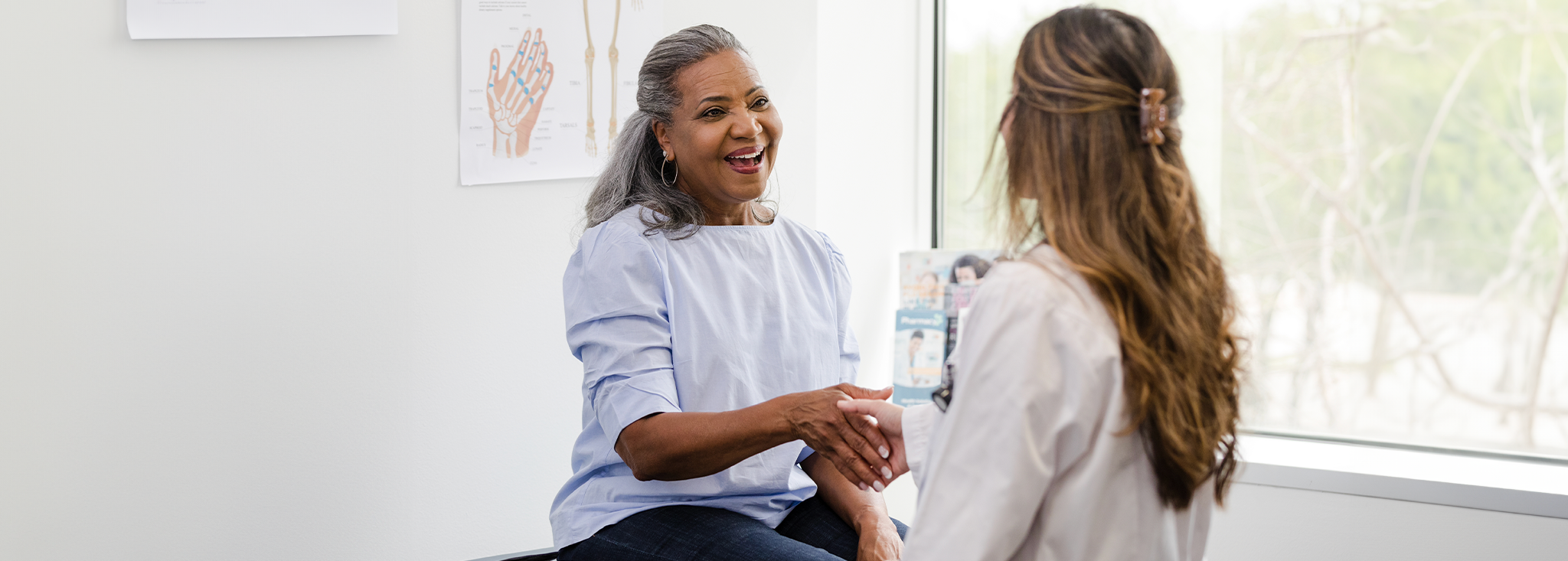Anxiety + Type 2 Diabetes
Written by: Mariana Gómez
3 minute read
May 22, 2019
Anixety and Type 2 diabetes are directly correlated, it's not just in your head. Living life with a chronic illness can be especially taxing and requires proper self care.
According to the American Psychology Association, anxiety is an emotion characterized by feelings of tension, worried thoughts and physical changes like increased blood pressure. People with anxiety disorders usually have recurring intrusive thoughts or concerns. They may even avoid certain situations out of worry or exhibit physical symptoms like sweating, trembling, dizziness or a rapid heartbeat. But what does this all mean? And is there a correlation between anxiety and type 2 diabetes?
What causes anxiety for those with diabetes?
For many living with anxiety, anything that might cause fear could also be a trigger for anxiety. If you live with diabetes, these triggers might include hypoglycemia, the idea of complications and other specific situations that will be different as we all are different individuals. Managing diabetes is hard and complex work that’s done 24/7. Feeling anxious is a natural response but anxiety can become a real roadblock if untreated.
Is there a relationship between diabetes and anxiety?
Of course there is! There have been multiple studies that have found the relationship between the two. And let’s be honest, diabetes management sometimes feels like a lot. Initial diagnosis can have a huge emotional impact and naturally, anxiety might appear. We have to find ways to work with our diabetes and address our emotional health accordingly.
Ok, I think I have anxiety, what can I do?
- Ask for help: Remember this is a natural response. Don’t feel ashamed if you need to ask for help—we’ve all been there. Peer support is extremely helpful. Visit diabetes forums to connect with other people and receive advice. Remember that emotional health has to be taken care of. If necessary, visit a psychologist or psychiatrist who knows about diabetes. The American Diabetes Association (ADA) has a directory that lists mental health providers so you can find one near you! American Association of Diabetes Educators (AADE) also provides a number of tools, including tip sheets detailing ways to cope with anger, stress, depression and distress as well as a helpful list of seven self care behaviors.
- Breathe: Yes, as simple as that. Deep breathing is one of the best ways to lower stress. This is because when you breathe deeply, it sends a message to your brain to calm down and relax. No, we’re not kidding.
- Express: Talk to those around you. Let your loved ones you’re feeling anxious, they might have some good advice for you. There’s no shame in feeling scared or having health-related fears. Your loved ones may help you find ways to overcome negative feelings and you should all work as a team to help each other.
- Activate: Keep busy! Find a new hobby or try new things. You might find this as a way to relieve anxiety. Plus, this might also help you meet new people and you’ll find yourself in new scenarios.
- Educate: Learn about diabetes! Diabetes education will give you tools and knowledge for better decision making and better knowledge overall might relieve you even if you don’t think it might. Request helpful resources and information from your health professionals—that’s what they’re there for!
Caring for our diabetes also includes taking care of our emotional health even though we often forget about this aspect of our lives. By being mindful of the importance of mental health, we can establish and maintain positive and lasting relationships with others, have the willingness to learn and face challenges that our life condition brings and enjoy an excellent quality of life. Above all, always keep in mind that you are not alone.

Author
Mariana Gómez
Mariana was diagnosed with type 1 diabetes in the summer of 1985. She is a diabetes educator and a licensed psychologist specialized in Narrative. In 2008, Mariana started a blog where she shares her experiences and diabetes knowledge with others and she began being an active advocate through social media. She is considered a diabetes influencer in Latin America and has participated in several conferences, events and TV shows dedicated to diabetes education in the last years. Mariana worked for the Mexican Diabetes Federation as communications manager helping to build and empower the diabetes community in Mexico. She is currently the program manager for Beyond Type 1 en Español.
Related Resources

Most doctor appointments start stepping on a scale—even if the appointment is for an earache!...
Read more

Between the rising cost of food, paying for diabetes medications and other living expenses, you...
Read more

Getting a type 2 diabetes (T2D) diagnosis can be overwhelming, scary and lead to many...
Read more

